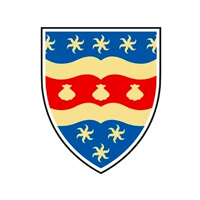fees waived
Mathematics with Statistics, BSc (Hons)
University of Plymouth, United Kingdom
Subject ranking
UK / Times 44th
UK / Guardian 54th
UK / The Times 96th
Costs
food & rentS$16.8K / year
Entry requirements
Scholarships
Unlimited quantity
Unlimited quantity
Unlimited quantity
Limited quantity
Information
Code
Code
Intakes
Website (External)
Programmes
Information
Duration
2028
Course summary
This course offers you an opportunity to combine your passion for mathematics with the latest statistical modelling and data analysis methods with many real-world applications. You will explore topics from familiar areas such as calculus, algebra and probability in a new and inspiring way, and extend your knowledge into more advanced topics such as computer simulations, medical statistics and financial time series. You will become a creative and analytical problem solver, able to discuss technical results with non-specialists. These are skills that are highly sought after by employers.
- Learn with excellent research-active lecturers, who design clinical trials, collaborate with national and international health organisations, and provide consultancy to environmental organisations, medical practitioners and financial institutions.
- Experience hands-on learning by working on real-life case studies provided by established companies including Babcock, BT and Plymouth Community Homes.
- Gain high-level programming skills and become proficient in using state-of-the-art software including Python and statistical packages R and Stan.
- Benefit from being part of the close-knit, collaborative and supportive family that is Mathematical Sciences at Plymouth. This includes small group tutorials, study space next to staff offices, our lecturers’ open-door policy, student-led learning sessions and the Maths Society.
- Enjoy new facilities – state of the art lecture theatres, computer laboratories, study and social spaces – in our £50 million teaching and research building opening in 2023.
- Core modules are shared with BSc Mathematics allowing the flexibility of easy transfer to our other mathematics degrees.
Modules
In your first year you will learn the underlying mathematics that underpins the rest of your degree and master coding in the industrial software Python, right from the start. You’ll begin by building on the mathematical skills and topics you learnt at school, studying six core modules including calculus, linear algebra, numerical methods, pure mathematics, and probability. We’ve structured the curriculum so that all of our students acquire a common mathematical expertise, so you’ll also have the flexibility to move between courses as you progress.In your second year, study core topics including statistics and statistical modelling, advanced calculus, analysis and ordinary differential equations. You will also have a case study-based introduction to operational research and Monte Carlo techniques.Take an optional but highly recommended paid placement year. Your placement will provide valuable professional experience, enhancing your employability and making your CV really stand out. Previous placement with world renowned companies have included the Fujitsu, GlaxoSmithKline, Vauxhall Motors, Liberty Living, Eli Lilly and the Department for Communities and Local Government.In your final year choose between several different project modules in mathematics, statistics or both, or opt to gain experience of teaching in a school. You will meet a wide range of statistical techniques, including medical and Bayesian statistics. You can also study a broad set of mathematical topics from partial differential equations to optimisation. After graduating, you’ll have the skills and experience needed to begin your career, or to take a research degree – often including funded places on MSc's in medical and financial statistics.
Qualified teacher status (QTS)
To work as a teacher at a state school in England or Wales, you will need to achieve qualified teacher status (QTS). This is offered on this course for the following level:- Course does not award QTS
In your first year you will learn the underlying mathematics that underpins the rest of your degree and master coding in the industrial software Python, right from the start. You’ll begin by building on the mathematical skills and topics you learnt at school, studying six core modules including calculus, linear algebra, numerical methods, pure mathematics, and probability. We’ve structured the curriculum so that all of our students acquire a common mathematical expertise, so you’ll also have the flexibility to move between courses as you progress. In your second year, study core topics including statistics and statistical modelling, advanced calculus, analysis and ordinary differential equations. You will also have a case study-based introduction to operational research and Monte Carlo techniques. Take an optional but highly recommended paid placement year. Your placement will provide valuable professional experience, enhancing your employability and making your CV really stand out. Previous placement with world renowned companies have included the Fujitsu, GlaxoSmithKline, Vauxhall Motors, Liberty Living, Eli Lilly and the Department for Communities and Local Government. In your final year choose between several different project modules in mathematics, statistics or both, or opt to gain experience of teaching in a school. You will meet a wide range of statistical techniques, including medical and Bayesian statistics. You can also study a broad set of mathematical topics from partial differential equations to optimisation. After graduating, you’ll have the skills and experience needed to begin your career, or to take a research degree – often including funded places on MSc's in medical and financial statistics.
A local representative of University of Plymouth in Singapore is available online to assist you with enquiries about this course.

